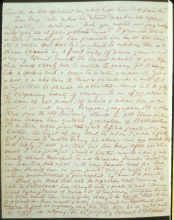Page 4
traveller as that spiritual one, which keeps them back from me."
Two days later when his "retreat" was decided upon in parting he asked me: "Will you watch over my work, will you see it falls not into ruins?" I promised. What is there I would not have promised him at that hour! At a certain spot not to be mentioned to outsiders, there is a chasm spanned by a frail bridge of woven grasses and with a raging torrent beneath. The bravest member of your Alpine clubs would scarcely dare to venture the passage, for it hangs like a spider's web and seems to be rotten and impassable. Yet it is not; and he who dares the trial and succeeds — as he will if it is right that he should be permitted — comes into a gorge of surpassing beauty of scenery — to one of our places and to some of our people, of which and whom there is no note or minute among European geographers. At a stone's throw from the old Lamasery stands the old tower, within whose bosom have gestated generations of Bodhisatwas. It is there, where now rests your lifeless friend — my brother, the light of my soul, to whom I made a faithful promise to watch during his absence over his work. And is it likely, I ask you, that but two days after his retirement I, his faithful friend and brother would have gratuitously shown disrespect to his European friends? What reason was there, and what could have caused such an idea in Mr. Hume's and even in your mind? Why a word or two entirely misunderstood and misapplied by him. I'll prove it.
Don't you think that had the expression used "coming to hate the Sut-phana" been changed into and made to read "coming to feel again flashes of dislike" or of temporary irritation this sentence alone would have wonderfully changed the results? Had it been so phrased Mr. Hume would hardly have found an opportunity for denying the fact as vigorously as he did. For there he is right and the WORD is wrong. It is a perfectly correct statement


